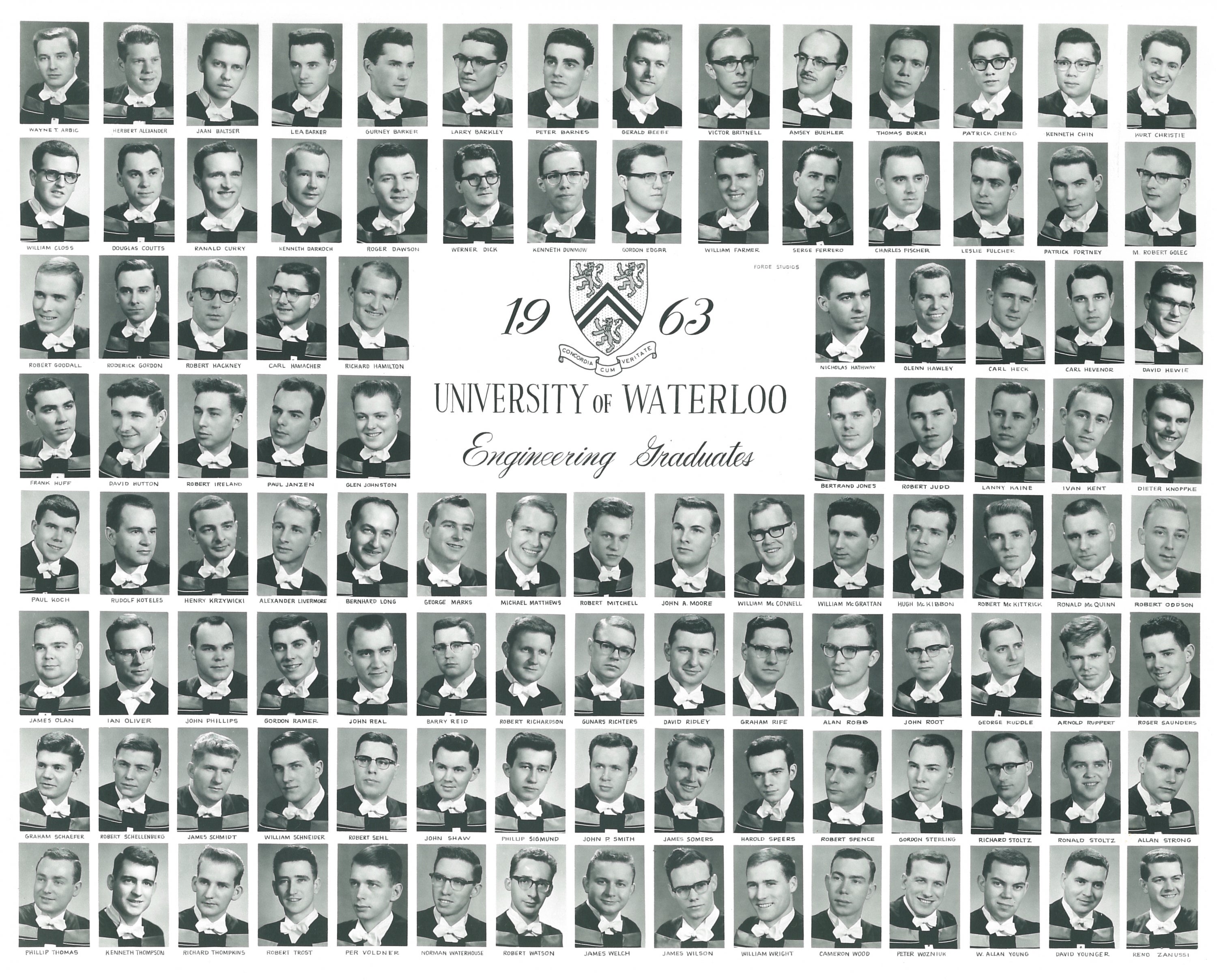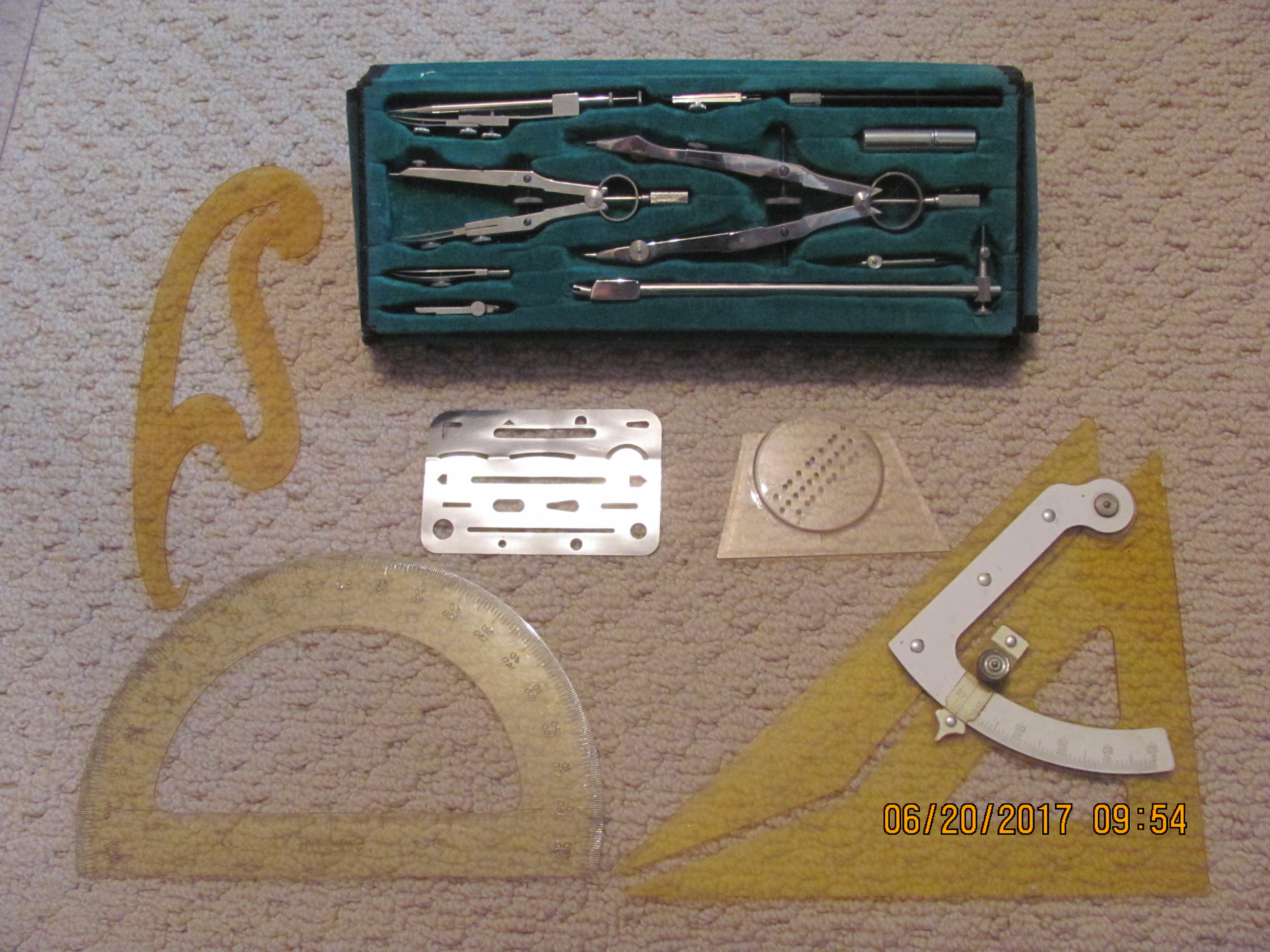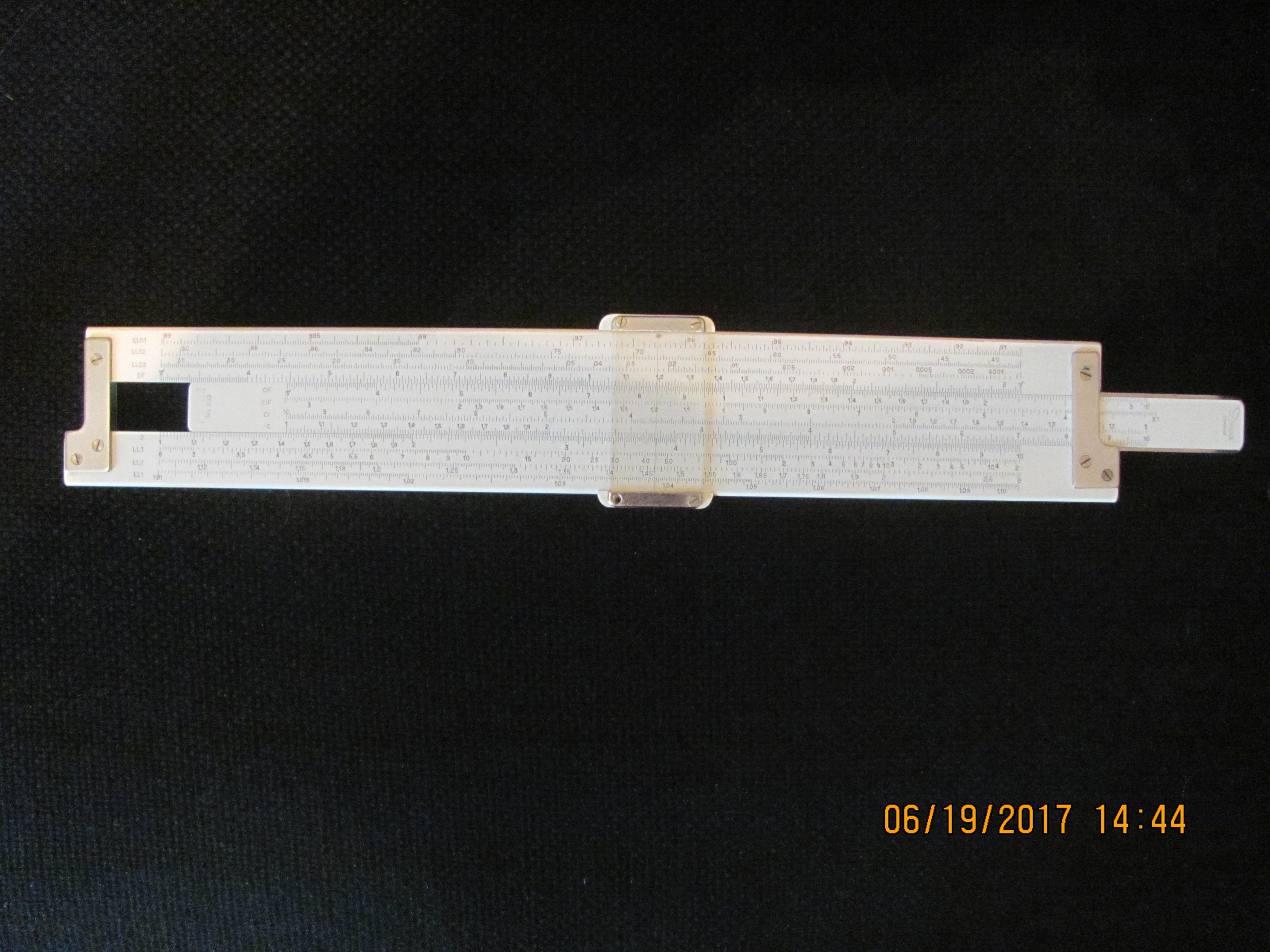In 1957, we took our first classes in prefabs erected at what was Waterloo College on Albert Street. That fall we put the first Engineering float in the Waterloo College Homecoming Parade – a model of the planet with the moon and the just launched first Russian sputnik floating over head. From that humble beginning, the UWaterloo Engineering program has been successful beyond the wildest dreams of its founders. The curriculum and approach to engineering education has changed dramatically and will continue to do so.

Keys to success as an Engineering student in those days was the ability to use a slide rule with great dexterity. It handled all of the mathematics (multiply, divide, logs, trig. functions etc.) but we added and subtracted manually as we didn’t have calculators. Most of today’s students have never seen a slide rule even if they know what one is. The advantage we had was developing the ability to manage decimal points in one’s head and test for reasonableness of any answer. The disadvantage was that doing the ‘arithmetic’ was very time consuming and did not allow the time or opportunity to ‘model systems’ and do multiple examples and see the impact of changing parameters on their behavior.

In 2017, 60 years later, instead of slide rules and manual calculations, today’s student does almost everything by computer and using the Internet. Instead of researching by going to the library and painfully spending time scouring scientific journals, today’s students just Google for information as needed. Engineering systems can be modelled and manipulated simply by changing the value of variables to see the impact on behaviour. This means that rather than a four hour lab to do just one calculation for a complex system, the student of today can ‘play’ with a system to really understand its dynamics. The disadvantage of today’s approach may be that the student doesn’t develop a deep understanding of the actual mathematics that underlies system behavior. However, the productivity of the new approach seems to far outweigh that disadvantage.

By 2077, it is impossible to predict where computer driven technologies such as ‘big data’ and ‘artificial intelligence’ will have taken us. For example, truck drivers and service jobs which employ the largest numbers today may almost be completely eliminated. In the past, jobs eliminated by automation have generally been replaced by new employment opportunities. However, we may now be reaching “the law of diminishing returns” on this front. Therefore, in addition to their traditional roles in society, engineers need to take an expanded leadership role to help reengineer our society so that all citizens have access to needed goods and service regardless of job opportunities. For obvious reasons, this will not be an easy journey and will require that the engineering curriculum evolve to prepare tomorrow’s Engineers for that challenge. I predict that UWaterloo Engineering will once again be a leader in this effort.